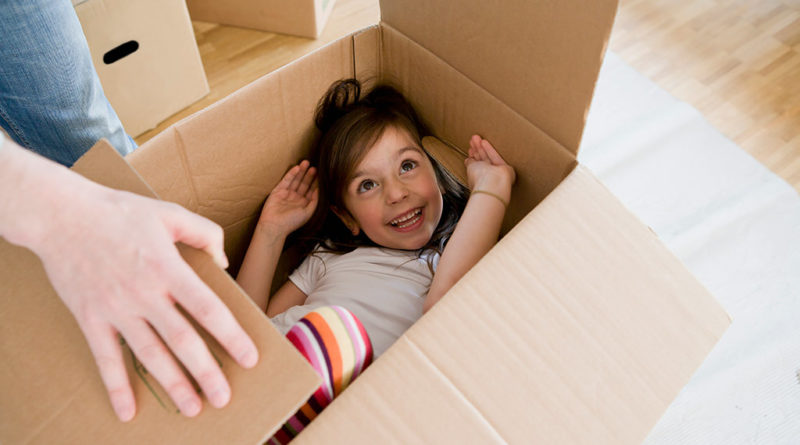How To Relocate For Expats With Children
Source: William Russell
We meet three expats who moved abroad and brought their kids with them. They share the challenges they faced and what they have learned.
Relocating to a new country is one of life´s great adventures, but it can also be daunting, especially if you have children to think about.
Whether you are making a permanent move or planning an extended stay, your family´s physical and mental wellbeing is the number one consideration.
We met some expats to find out what you should consider when taking your kids to live abroad.
Preparing for change
One of the first steps is to ensure that your children have had the recommended immunisations for your destination. Online guides such as NHS Fit for Travel and Travel Health Pro offer country-by-country advice.
Other factors will depend on your children’s ages and the country you are relocating to, says Clara Wiggins, author of the Expat Partner’s Survival Guide.
Wiggins, along with her husband and their two daughters, have lived in a host of locations around the world. She suggests preparing your children by involving them in home searches and school visits.

“If you are not able to take children on a look-see, I would recommend doing a video for them or even a live Facetime or Skype so they can get an idea of where they are going.” Google Earth and Streetview can be useful too, she says.
You can also ease the transition by bringing familiar things from home on the plane, rather than waiting for them to arrive later.
“We brought my younger daughter’s fairy lights for her bedroom, and we also brought their duvet and pillow covers. The first few nights in a new place can be hard so making their rooms feel like home is one way to help.”
Jaimie Seaton is a journalist from the US. When her husband was offered a position with Citibank in Singapore, they jumped at the chance and relocated with their son and daughter – then aged two and five. After two years in Singapore, the family moved to Thailand.
“Frame the move as a great opportunity and adventure, not as a challenge,” she says. “Do research as a family of your new home, teach them about the culture, look up fun things to do in the new country.” Seaton also ensured that her children understood cultural differences before they moved to Thailand.
“The main things we had to discuss with them were the strict rules around the royal family. It’s against the law to insult the royals, especially the then-king, who has since passed away.”
Healthcare: know what to expect
If your child requires specific medication or access to ongoing treatments, research how accessible these will be. Call local hospitals or doctors, and seek advice from other expats via online forums and Facebook groups.
Theodora Sutcliffe is a travel writer and blogger. In 2014, after four years of travelling together, she and her son (now nine) settled in Bali.
“It’s important to be aware that medical care in Bali isn’t the best,” says Sutcliffe, “Most expats get medical insurance that covers them to be evacuated to home or a second country, typically Singapore, in emergencies.”
Facilities will vary widely across the world. Some countries, such as Hong Kong, have highly developed healthcare. Seaton found local services to be excellent.“The medical care in Singapore (and Thailand) is far superior to the US.”
But given the incredibly varied quality and availability of public healthcare from country to country, not all expats will move to a location that offers reliable local medical services. You may even be expected to foot the bill for private healthcare, so having international health insurance cover in place is vital before you go anywhere.
While her family were posted in St. Lucia, Wiggins knew that if there was a serious health incident, they would be medically evacuated under the terms of her private insurance plan. But she also suggests preparing for the unexpected. “I always recommend doing a ‘dry run’ to your local emergency department or hospital and making sure its location is in your GPS and number is in your phone,” she says.
She points out that it is also important to know what the procedure is when you arrive at hospital, for example, do you need to pay for treatments up front? Such procedures will vary greatly depending on whether you have an international private medical insurance (IPMI) plan, if it provides direct settlement to the hospital, or if you’re accessing care independently.

Settling in and enjoying your new life
Be aware that many health issues can be prevented by using common sense. Make sure that your children understand safety rules about drinking water, for example, can they brush their teeth with tap water or not? The same applies to food safety, especially at street stalls and markets.
While some children will adapt easily, others may need more time. If your child is missing friends back home, Skype and FaceTime are good ways of keeping in touch.
Writing letters helped Wiggins´ daughter. “Very few of these got sent, so what I actually think she was doing was just processing her feelings and this is the best way she could do it.”
To keep a familiar routine, Wiggins´ tip is to continue doing sports and hobbies your child already enjoys, “In our case this has been football and swimming, which has also given them a chance to meet children away from the school environment.”
In Bali, where Sutcliffe and her son are based, the beach is a great place to meet other kids but there are dangers to be aware of. “Make sure you and your children understand water safety: the currents in the sea are no laughing matter,” she says.
Living in Thailand and Singapore, Seaton found that live-in help made life easier. But while this can be a perk of relocation, it may be a cultural adjustment for your children, she says.
“It’s important to remind children that they are not superior and to instill your values, which can be challenging.”
And – go local! Do not assume that things are better in your home country and be open to how other cultures do things.
“Enjoy every moment. It’s a gift to live overseas, and will give your children a worldview that will carry them far in life.”
For all your global health insurance questions, call our dedicated team on 020 77 100 200 or contact us at info@jclao.com




